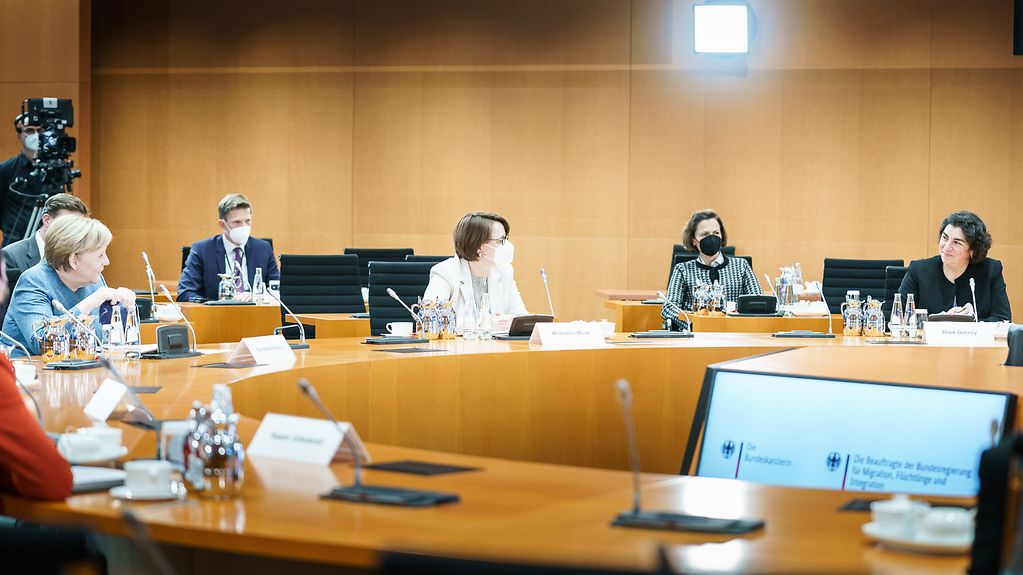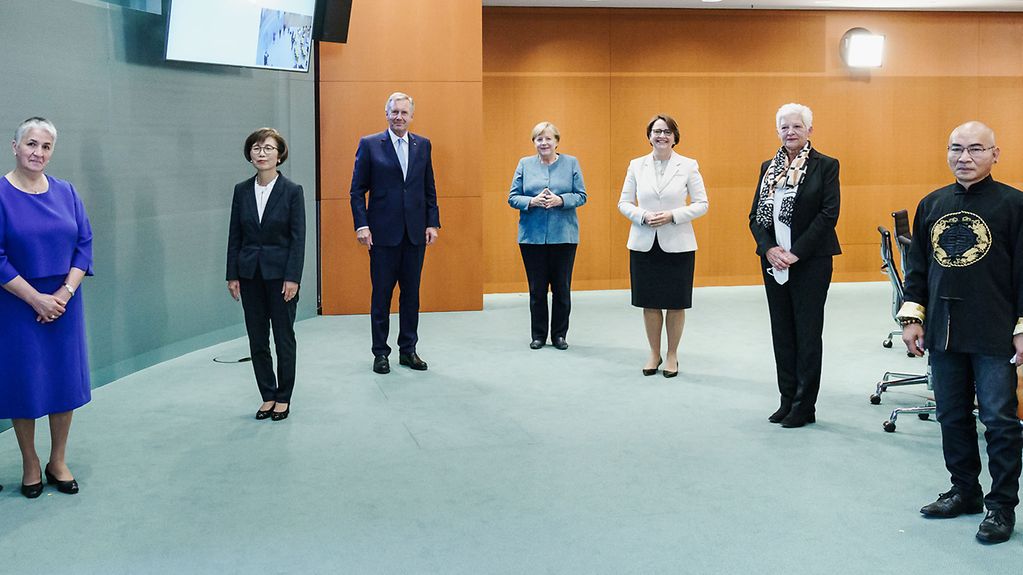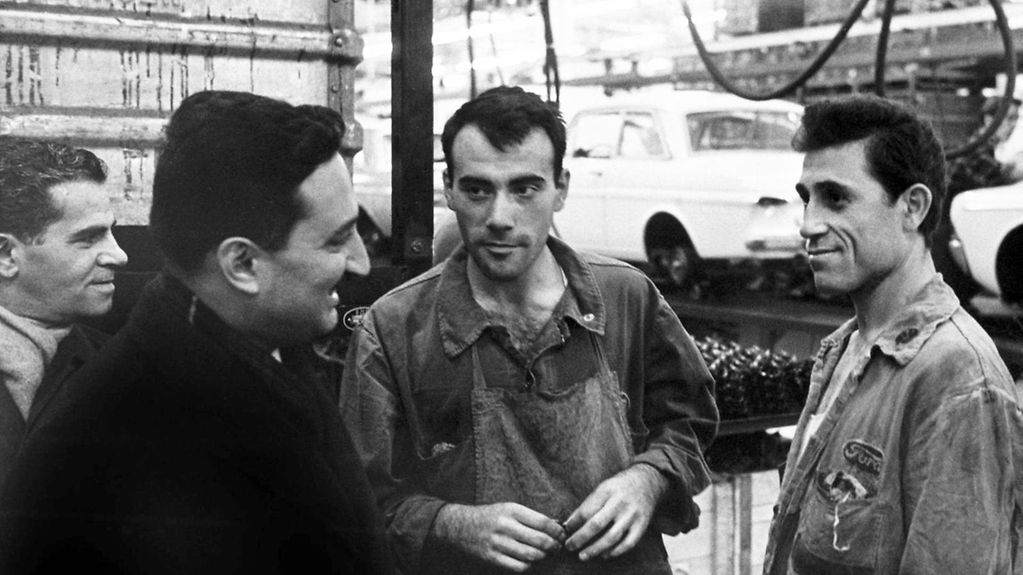Presentation of the Talisman Integration Award
Federal Chancellor Merkel and Integration Minister Widmann-Mauz attended a festive event to pay tribute to the lifetime achievements of guest workers and contract workers in Germany. The moving ceremony also included the presentation of the Talisman Integration Award.
3 min reading time

Moving speeches at the Federal Chancellery: together with their children, the award winners talked about their lives.
Photo: Federal Government/Denzel
Federal Chancellor Merkel and Integration Minister Widmann-Mauz attended a festive event to pay tribute to the lifetime achievements of guest workers and contract workers in Germany. Along with foundation chair Christian Wulff, they presented the Talisman of Deutschlandstiftung Integration to four award winners.
Merkel thanked them – as representatives of all guest and contract workers – for their achievements in Germany over the past 60 years. It was by no means easy for those who came to Germany at that time, said the Federal Chancellor, noting that integration policy with courses on civic integration, language and counselling services did not exist back then.
Companies and trade unions had been the driving force behind integration, she said. The new skilled workers had made Germany stronger, stressed Merkel, saying that they had enabled Germans to develop an understanding of the world and other cultures.
Herculean task accomplished
The Federal Government Commissioner for Integration, Annette Widmann-Mauz, said that the first generation of immigrants had faced a Herculean task. This was why their achievements deserved “our very special respect and recognition”, she said. Immigrants, their children and their grandchildren had been instrumental in making Germany a strong and prosperous country.
“The women and men who arrived with a single suitcase worked hard to help make Germany the economically strong country at the heart of Europe it is today," said Widmann-Mauz. “Made in Germany” owed its sound reputation to the very first guest workers, too, said the minister.
Merkel pointed out that Germany now had legislation on admitting skilled workers into the country and had become an open country – a country of immigration. This was something that had made Germany stronger. “It is this togetherness that is the goal of integration. Integration can’t be left to last seven generations just because people don’t have names like Klaus or Erika,” Merkel said.
Presentation of the Talisman Integration Award
The festive event included the presentation of the Talisman Integration Award. Four former guest workers and contract workers received the Talisman for their life’s work, with their children present. These individuals stand for the many millions who helped enable the next generation to have successful lives in our country. The children gave moving speeches in praise of their parents. The Talisman was presented to:
- Ms. Zeynep Gürsoy, who immigrated from Turkey. In the presence of her daughter Dr. Dilek Gürsoy, a heart surgeon.
- Ms. Anka Ljubek, who immigrated from Croatia. In the presence of her son, Carlo Ljubek, who is an actor.
- Ms. Yang-Hee Kim, who immigrated from Korea. In the presence of her son Min-Sung Sean Kim, who is an entrepreneur and mentors start-ups.
- Mr. Hoai Nam Duong, who immigrated from Vietnam. In the presence of his daughter Mai Duong Kieu, who is an actress.

Honoured for their life's work: Zeynep Gürsoy (left), Yang-Hee Kim (2nd from left), Anka Ljubek (2nd from right) and Hoai Nam Duong (right). Federal Chancellor Merkel, former Federal President Wulff and Minister of State Widmann-Mauz offered their congratulations.
Photo: Federal Government/Denzel
Recruitment agreement with Turkey of 1961
The Federal Republic concluded the first recruitment agreement with Italy on 20 December 1955, which was followed by agreements with Spain and Greece in 1960. Germany and Turkey then signed an agreement on 30 October 1961. The workers from Turkey were initially supposed to stay in Germany for one or two years. Later, the planned rotation principle was abolished – not least at the request of the companies, who wanted to keep their trained workers on the payroll.
Some three million people decided to stay permanently: they started families and adopted Germany as their second home. This is one reason why a quarter of today’s German population has a family history of immigration – a total of some 21 million people.

Talks in car production: Turkish workers at Ford in Cologne three years after the signing of the recruitment agreement.
Photo: picture alliance / CPA Media Co.